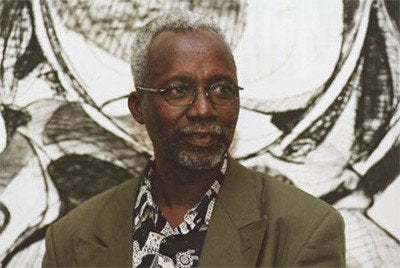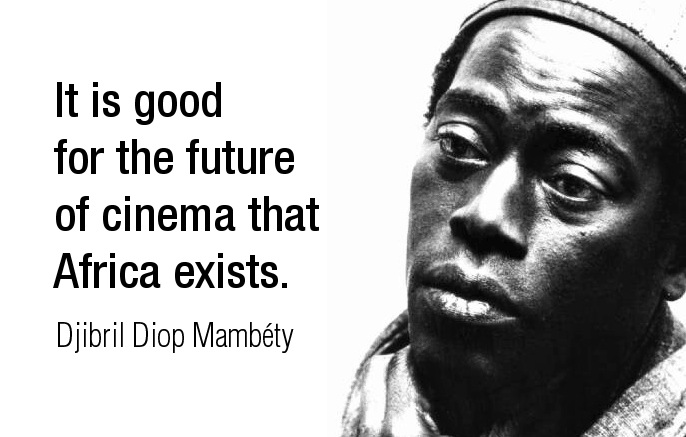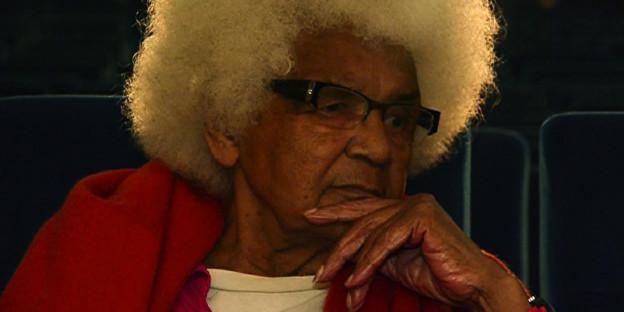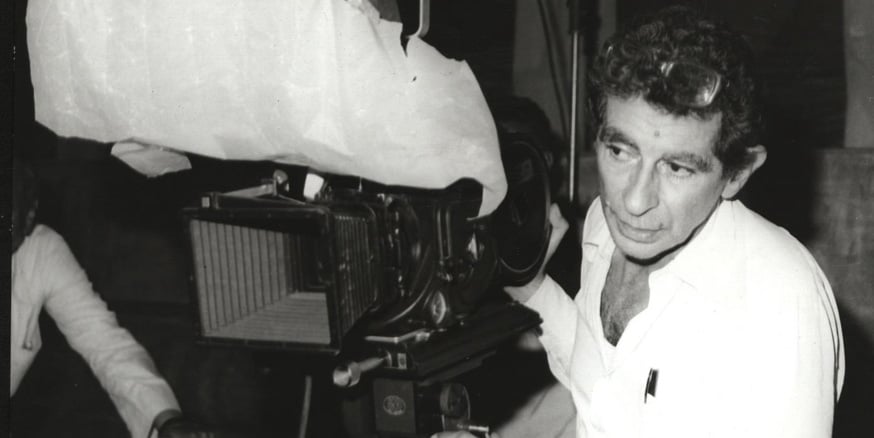Top 10 African Movie Directors

Africa has had an important spot in the internal film industry for close to one century. In this article, we are going to feature the best African movie directors of all times since African produced films started gaining international recognition.
Without further adieu, here are the most prolific, top ten African movie directors.
Neill Blomkamp

Born on 19th September 1979 in Johannesburg South Africa, Neill Blomkamp has had a successful string of movies directed by him since his debut in the film industry in the late 1990's as 3D animation expert.
His most famous movie is District 9, which was Africa’s best Sci-Fi film in 2009. Its success made him to be nominated for the Academy Award for Best Adapted Screenplay. Niell Blonkamp has so far directed 18 movies with more than a dozen of them being done in 2017 alone.
Abderrahmane Sissako

Abderrahmane Sissako was born on 13th October 1961 in Mauritania. He is best known for his movie Waiting for happiness. This movie expresses the limbo encountered by the dream of most people from his native land to emigrate to France and other destinations abroad as the land of their dreams.
Sissako’s films are focused primarily on issues pertaining society, more so humanism, social consciousness, globalization, displacement of people, exiles and the intricate relationships between North and South. In this theme, he explores the fate of Africa in the global affairs.
Souleymane Cissé

Souleymane was born on 21st April 1940 in Mali. He has won two awards - Sutherland Trophy, and Cannes Jury Prize. He was nominated for Independent Spirit Award for Best International Film.
He debuted his filming career with a medium-length film titled ‘Five Days in a Life’, which is a story about a young man who drops out of Madrassa to become a petty thief.
This was followed by ‘The Girl’ in 1974, which is about a young mute girl who has been raped, becomes pregnant and is rejected by both her parents and those of the child’s father. Unfortunately, the film was banned and him jailed. However, he never gave up.
In 1974, he produced ‘Work’ (Baara) which received him several awards including Talon prize award at FESPACO. In 1987, he released Yeelen, which won him Jury Prize at the Cannes (1987). He went on to produce many other films later on.
Another must read: Most Populous Countries In Africa
Moufida Tlatli

Moufida Tlatli was born in Tunisia in 1947. She worked extensively as a film editor before launching her career later on as a film director. She is renowned for her famous film The Silences of the Palace.
This depicts the story of the women sufferings in silence and secrets of the pain of the servant women during the times of the French colonial rule in Tunisia. This film was released in 1994. Other notable films directed by her include ‘The Season of Men’ released in the year 2000 and ‘The Season of Women' released in the year 2004.
After the civilian overthrow of Zine El Abidine Ben Ali in 2011 during the ‘Arab Spring’, she was appointed as Minister for Culture in the successive government.
Dani Kouyaté

Dani Kouyate was born on 4th June 1961 in Burkina Faso. He began his filming career with Biakoro in 1989. Before that, Kouyate had been involved in performance arts theater for quite some time prior to enrolling for Cinematography at the Ouagadougou African Institute of Cinematic Studies.
His famous film was Keïta, l'Héritage du Griot which was released in 1985 retracing the life of the founder of the Mandingue Empire, the legendary Soundjata Keïta.
Inspired by its success, he directed another one ‘Sia, le rêve du python’, depicting the legend of Wagadu of the Soninke myth which was released in 2001. He has directed several TV series and short quite a number of short films.
Related: Hottest African Actresses in Hollywood - Top 10
Mohammed Lakhdar-Hamina

Lakhidar-Hamina was born on 26th February 1934 in Algeria. He is best known for his famous film Chronicle of the Year of Embers that was done in 1975. Lakhdar-Hamina’s early career was emblemized in the struggle for Algerian independence from France.
The Algerian liberation movement – Algerian National Liberation Front., sponsored the early stages of his film career. Initially, he collaborated with others in his first film productions including Our Algeria (Djazzaïrouna), which he collaborated with Pierre Chaule and Djamel Chanderli in its production.
The film was about the goals of Manquis – an Algerian nationalist liberation movement. It was produced in 1960. Other notable films included Yasmina (1961) which was about a refugee girl, The Guns of Freedom (1961), and The People’s Voice (1962).
After Algeria gained independence in 1962, the theme of his later films focused on national identity and the self in postcolonial emancipation. Apart from the Chronicles of the Year of Embers, another film that shot to international fame is ‘The Winds of the Aures ‘which received the Best First Works Award at Cannes in 1966. Chronicles of the Year of Embers remains the only African and Arab film to have won the Golden Palm at Cannes.
Djibril Diop Mambéty

Djibril Diop Mambéty was born on January 23, 1945, in Senegal. He was a poet, orator, composer, actor and film director. Although he directed few films, they were a masterpiece in their own right in terms of their originality and unconventional narrative style.
He entered the film industry with his famous title “A City of Contrasts” in 1968. This was followed by his second film “Badou Boy” which was released in 1970.
The masterpiece that brought him to international fame was Touki Bouki (Hyenas Journey) which was revered for its sophisticated artistic narrative style. It was released in 1973.
Though he had few films to his accolades, their quality was enough to put him into the legendary records of African film directors.
You May Also Like: Richest Countries In Africa
Sarah Maldoror

Sarah Maldoror is regarded as the matriarch of African film. She is Guadalupean of African descent born in France. She dedicated most of the film towards African issues, notably, the African struggle for independence, liberation, and justice.
She was feted in 2011 by the French government by being awarded the National Order of Merit in contribution to world culture. She is famously known for Sambinzanga, a film she directed which was focused on Angola’s independence struggle and the brutally meted upon Africans, which galvanized the independence movement.
He debut film was Monangambee, which was about women experiences in the liberation struggle in Angola and was done in 1968. In her career spanning over two decades, she has over two dozen films to her credit.
A Relevant Read: West African Countries
Ousmane Sembène

Ousmane is considered the patriarch of African film. He was born on 1st January 1923 in Senegal. He was so much attached to social issues affecting Africa then, more so issues related to colonialism, newly independent but oppressive African governments and the plight of the people in those situations.
He had most of his punches in literature than in the film. Several of his works were banned in French West Africa for his radical extremist approach to issues. He had a great record of works in literature and films.
His most famous film is Guelwaar (Senegal, 1993). Other notable films included Xala and Ceddo. Ceddo was the most notoriously censored film by authorities in French West Africa.
Youssef Chahine

Youssef Chahine was born on 25th January 1926, in Alexandria Egypt. The Lifetime Achievements Award granted to him at Cannes caps his career that spanned close to four decades.
His career began in the 1950's and by the time of his death, he had 44 films to his credit. The most famous film is Cairo Station, which was recorded in 1958. He entered the film industry in 1950 with his title Baba Amin (Daddy Amin) which was followed closely by the second title Ebn el-Nil (Son of the Nile) which was done in 1951.
Cairo Station was his third title. Most of his films were well received internationally but had many problems in his own native country – Egypt. This is primarily because some of them ran counter to the political climate at the time and seemed against Islamic religious faith.
He was a frequent victim of death threats from Islamic extremists. However, he too received criticism from American establishment for his film that sought to depict American foreign policy as the cause of millions of deaths across the globe.
Related: Most Popular African TV Shows - Top 10
Conclusion
Africa has a rich cultural heritage. It needs more talented film directors to drive the rich African narratives that remain untold.
If Africa has to stand strong on the global arena, then, its feet must be deeply anchored in its culture and its voices made to reverberate across the globe. Thanks to these great African movie directors that pace has been set.

